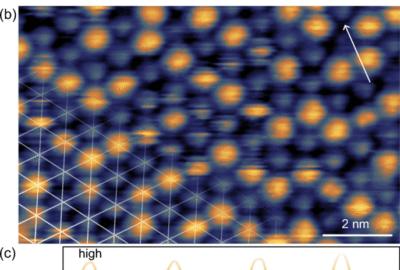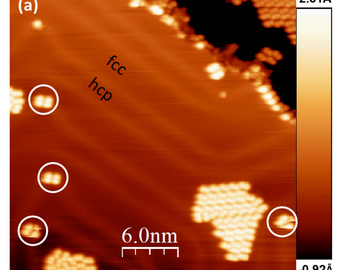publications, Réseau
Geometrical Frustration, Correlated Disorder, and Emerging Order in a Corrugated C60 Monolayer
Under certain experimental conditions, the deposition of C60 molecules onto an atomically flat copper surface gives rise to the formation of corrugated islands. This corrugation, which reflects a molecular displacement perpendicular to the surface plane, presents an astonishing pattern: It is well described by a frustrated Ising spin Hamiltonian whose thermodynamics is compatible with a spin liquid about to transit toward an ordered zigzag state. Here we study the statistical properties of such a molecular corrugation using a structure factor analysis, a tool generally employed in frustrated magnetism. More specifically, the real and reciprocal space analysis of pairwise molecule correlations allows us to demonstrate that the C60/Cu system, in which magnetism is totally absent, has all the characteristics of a triangular Ising antiferromagnet. Our results indicate that the organization of two-dimensional matter, at the molecular length scale, sometimes turns out to be particularly close to that encountered in highly frustrated magnets.
Comments are closed






